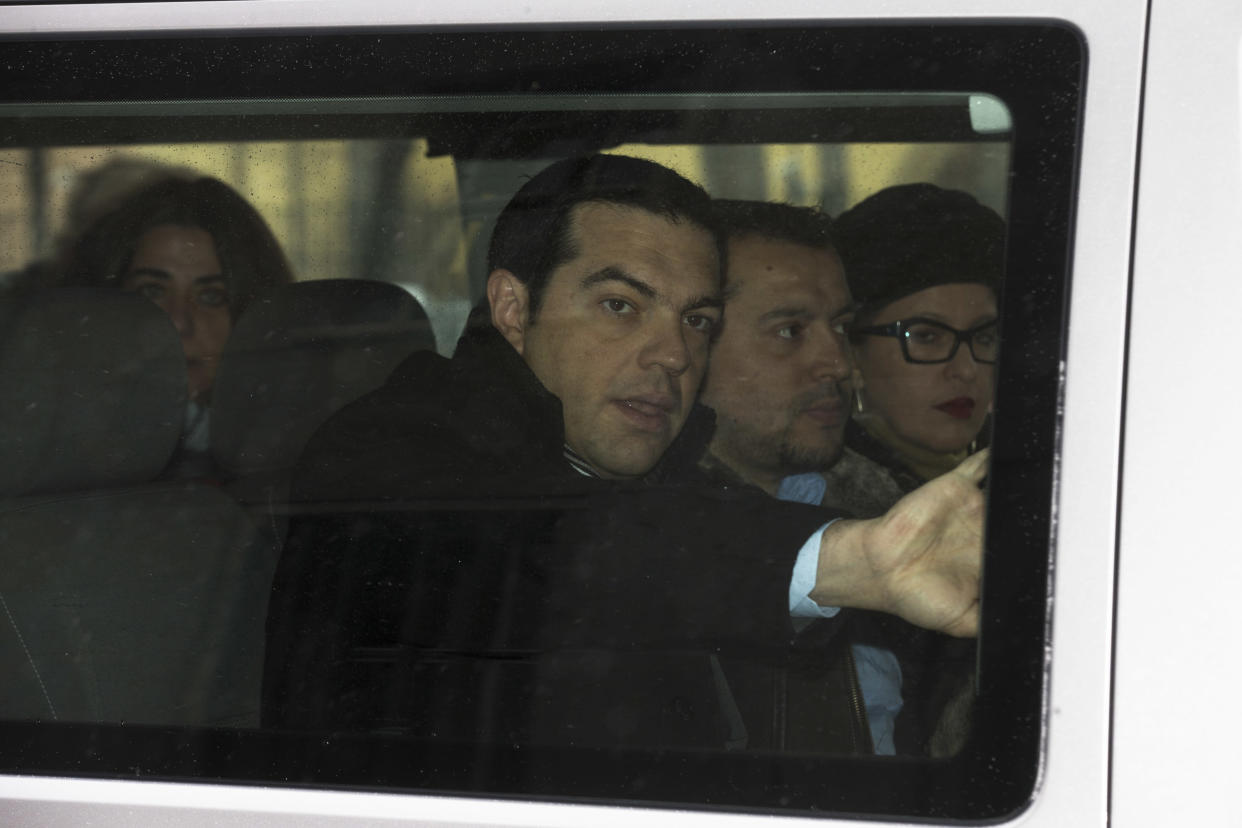Germany, Greek opposition clash on austerity
German finance minister, Greek opposition leader Tsipras clash over austerity measures

Greek left wing politician and party leader Alexis Tsipras opens the car door as he arrives at the German Finance Ministry for a closed meeting with Finance Minister Wolfgang Schaeuble in Berlin, Monday, Jan. 14, 2013. (AP Photo/Markus Schreiber)
BERLIN (AP) -- Germany's finance minister and Greece's leftist opposition leader clashed Monday over the austerity program attached to Athens' international bailout loans, with the Greek politician insisting the approach is a "nightmare" and a failure.
As a result of the harsh budget cuts and structural reforms imposed on Greece — policies long championed by Germany and its Finance Minister Wolfgang Schaeuble — Greeks are facing "impoverishment, unemployment, and the rise of fascism," Alexis Tsipras said in a statement.
The Greek opposition leader met Schaeuble behind closed-doors at Berlin's finance ministry. Tsipras described the meeting as "useful and constructive."
Schaeuble, in turn, made it clear that Greece must implement the package of austerity measures and reforms it agreed to with its creditors if it wants to remain one of the 17 nations using the euro currency, a German official said after the talks.
Leaving the eurozone could devastate the Greek economy, which is already in its sixth year of recession with unemployment stuck at 26 percent. Even Tsipras has previously said he does not want Greece to abandon the euro.
The German official said Monday's meeting lasted about 30 minutes. He spoke on condition of anonymity because he wasn't authorized to discuss the meeting publicly.
The ministry did not release an official statement, which is common because Tsipras is not a member of government.
Tsipras heads the Radical Left Coalition Party, which currently leads Greek polls. He strongly opposes international creditors' demands for structural reforms, tax raises and public spending cuts.
Greece's economy is being kept afloat by those international creditors — other European states and the International Monetary Fund — through rescue loans worth €240 billion through 2015.
___
Frank Jordans contributed to this report.

